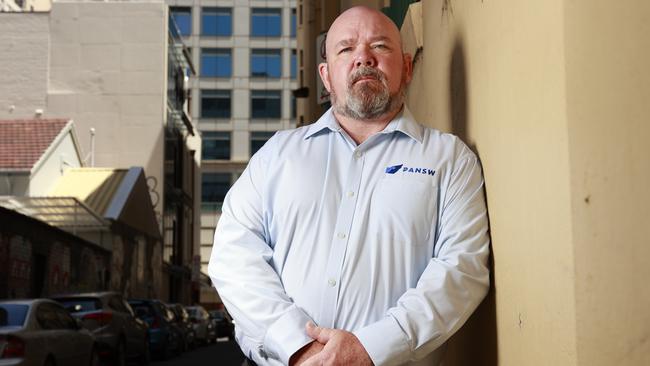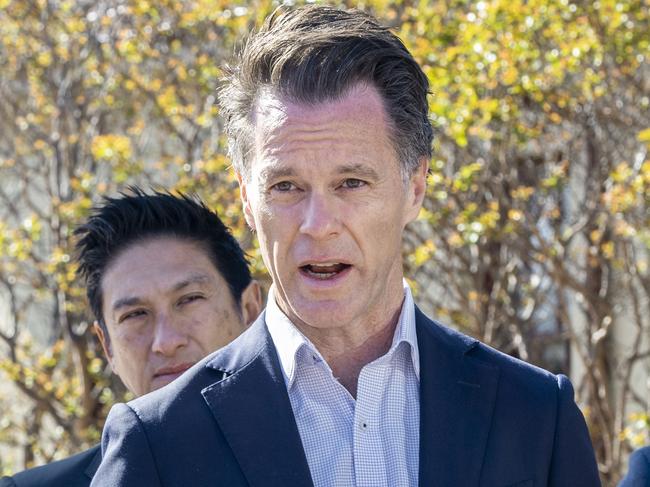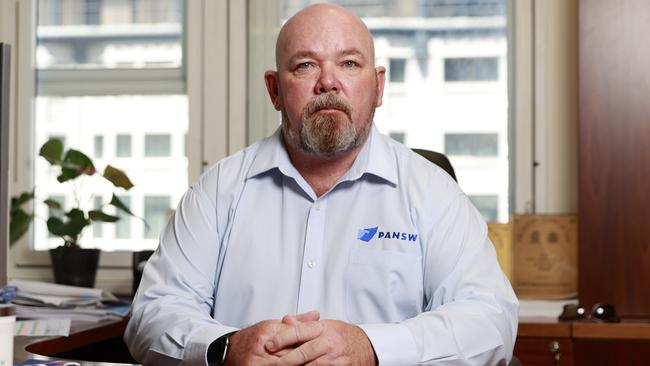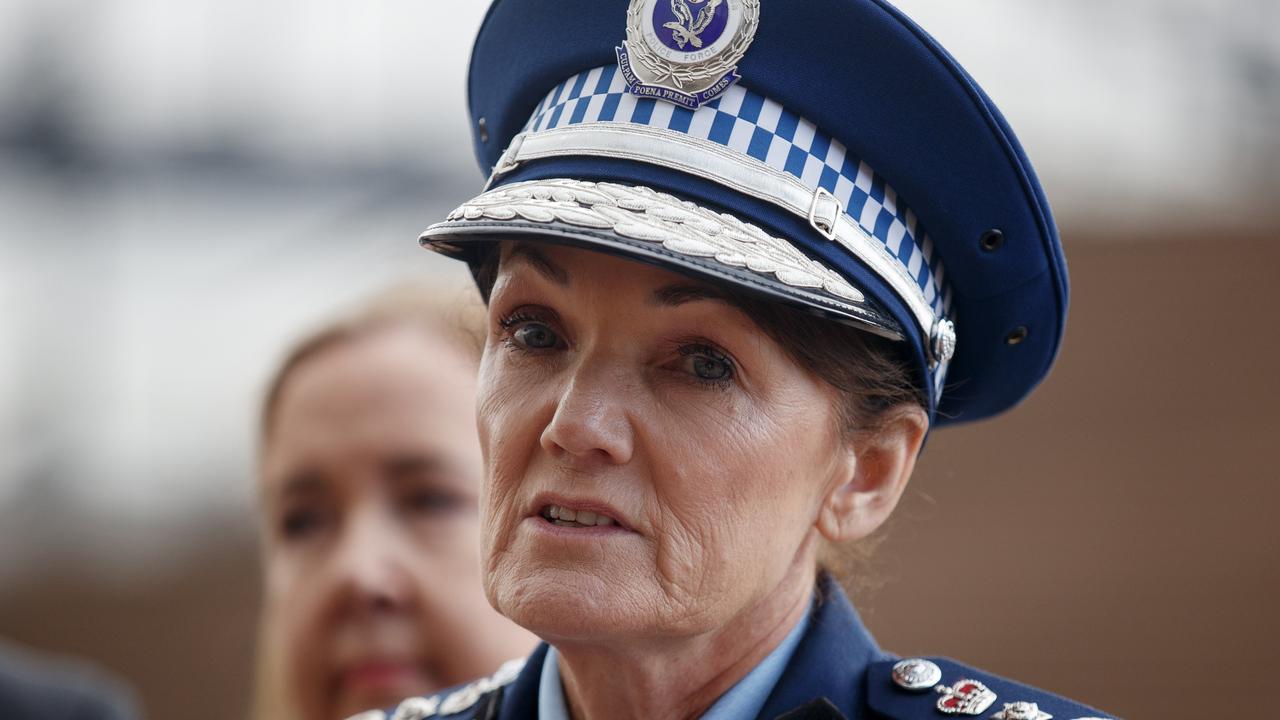Paramedics fear safety would be at risk if police stop attending mental health incidents in NSW
Paramedics fear their safety would be put at risk if police stop attending emergency mental health incidents after NSW Premier Chris Minns said he would consider following in the footsteps of the UK police.

Police & Courts
Don't miss out on the headlines from Police & Courts. Followed categories will be added to My News.
Paramedics fear their safety would be put at risk if police stop attending emergency mental health incidents after NSW Premier Chris Minns said he would consider following in the footsteps of the UK police.
Mr Minns yesterday said senior NSW police would travel to London to learn from the city’s Metropolitan police, who will no longer be the first responders for mental health incidents after winning a battle with the NHS.
It came after The Daily Telegraph reported the Police Association of NSW was pushing to free up officers from dealing with mental health cases unless there was an immediate threat to life.
However, Health Services Union secretary Gerard Hayes warned the Minns government against “shooting from the hip” with a new policy which could endanger paramedics, and called for an all-agency sit-down to overhaul the current “piecemeal” system.
“Patients with mental health issues go from being very sedate to very violent, very quickly,” he said.

“We all know it’s a problem, we all know it’s growing (and) some of us who have been at the coalface understand the potential volatility of things.”
The Premier acknowledged the “extremely complex” and at times dangerous duties required of police and paramedics, but said deciding the right first responder was a “tricky” issue.
“Often when the dispatch call comes through it’s unclear to the operator whether the event is one that involves violence, or could involve violence, and therefore requires police,” he said.
“If there’s changes that we can make in terms of that protocol, we’ll do it.”
In a statement, NSW Ambulance said they have “a strong collaborative relationship” with police, including a Memorandum of Understanding on mental health.
“Paramedics are registered health care professionals trained in managing a
range of mental health conditions,” a spokesperson said.
“NSW Ambulance and NSW Police work together to ensure paramedic safety in all
operational situations.”
From the end of next month, officers in London will only be sent out to mental health-related events where there is a crime, threat to life or public safety concerns.
‘DESTROYED, BROKEN’ OFFICERS SICK OF COPPING IT OVER MENTAL HEALTH
Police are threatening to stop attending emergency calls relating to mental health incidents in protest against their “hostile” treatment at coronial inquests, their union says.
The Daily Telegraph can reveal the Police Association of NSW (PANSW) has written to two attorney-generals raising concerns about the “unfair” treatment of its members at inquests, with some officers left feeling “destroyed” and “broken”, and quitting the police force as a result.
In an exclusive interview with The Daily Telegraph, PANSW president Kevin Morton called on the government to free up officers from mental health call-outs, after members complained about being “ambushed” at critical incident inquests.
A critical incident is a police operation that results in a death or serious injury, nearly half of which involve a person experiencing a mental health crisis.
“Whenever there is a critical incident at the coroner’s court and there is some element of mental health about it, it seems only the cops are put under the spotlight,” Mr Morton said.

“What about the health services involved? Why are they not held to account?
“This shouldn’t be our problem … mental health is not a police problem.”
Mr Morton said health professionals should be the first responders in mental health cases, rather than police.
The call comes after London’s Metropolitan Police won its battle to stop attending most of the mental health calls the service receives.
“Like the UK, we call on all sides of government, all sides of the parliament, to have police stop attending any of these mental health incidents. Health should take over,” Mr Morton said.
The new policy – which would be waived if there was a threat to life – has been floated after Mr Morton said he got “nothing in return” to his letter to former NSW attorney-general Mark Speakman voicing his concerns. Current NSW Attorney-General Michael Daley confirmed he had recently received the letter.
“We have tried to do the right thing … we have had enough,’’ Mr Morton said.
The letters detailed the 2022 inquest into the death of Gordon Copeland, a 22-year-old Indigenous man who drowned after falling into the Gwydir River at Moree following a police chase.

While acknowledging the need for “transparent and robust oversight” of police operations, Mr Morton wrote that the inquest was, in the union’s view, “heavily weighted in appeasing the family of the deceased and took no account into the welfare of those involved officers who are now damaged by the experience”.
Mr Morton told The Telegraph officers had also been left “traumatised” after families and friends of Mr Copeland wore T-shirts with the slogan “Killed by police” to court and blown-up pictures of Mr Copeland were placed in front of police as they gave evidence.
He also issued a “please explain” to Mr Daley after the coroner attended a march held by the Indigenous community on the opening day of the inquiry and was present at a smoking ceremony outside the court.
The coroner’s office has denied claims by the NSW Police Association that the coroner overseeing the inquest attended the march.
“Young officers go into the box trying to give evidence in this environment. It just destroys them. A number of them have been broken by it,” Mr Morton said. “They have gone to the court … and then feel like they are ambushed.
“We are a diverse police force with First Nations officers and we want many more, but feel the actions of the coroner’s office are not helping us in being able to achieve this.’’
A spokeswoman for the Department of Communities and Justice said the coroner’s job was to determine the date, place, cause and manner of the person’s death and to do so “in a culturally sensitive and appropriate manner”.




